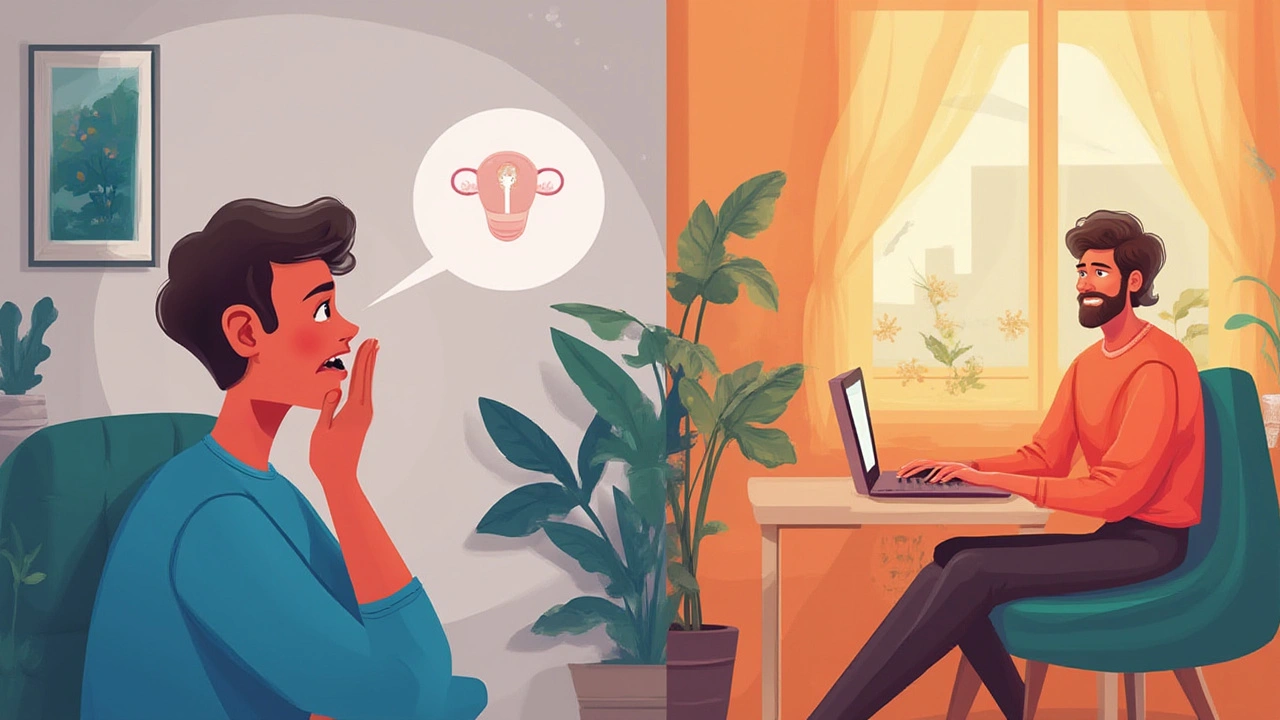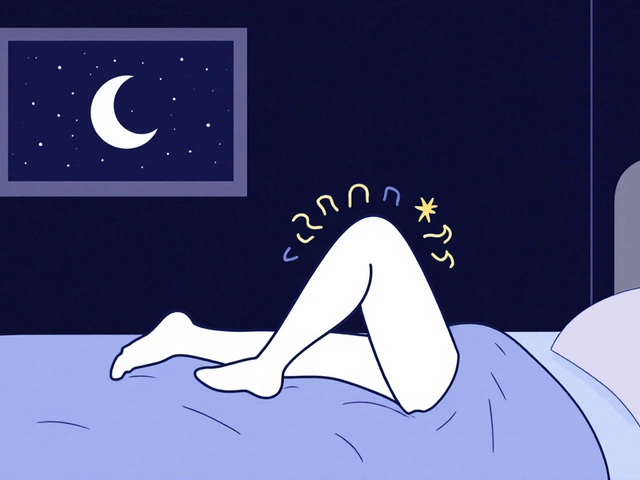Ever wonder why some people seem to have boundless sexual energy while others struggle to stay interested? You’re probably thinking about lifestyle or chemistry, but here’s a curveball: regular sexual health check-ups can make a bigger difference than you think—sometimes they’re the secret ingredient to maintaining your drive. Modern research is connecting the dots more than ever, showing the surprising ways that keeping tabs on your sexual health pays off in the bedroom. Sure, check-ups help you dodge nasty infections, but their impact on libido is often overlooked—even though it’s huge.
The Overlooked Link Between Health Check-Ups and Libido
Let’s get straight to it: sexual health and libido are joined at the hip. Most folks hit the doctor only when something goes wrong. But skipping out on regular check-ups leads to missed warning signs—not just of infections, but imbalances and underlying issues that quietly steal your spark over time. Did you know that even minor untreated infections can put the brakes on desire? It’s not just discomfort down there; it’s about your body subtly going into ‘protection mode’, redirecting energy from pleasure to recovery.
Your libido is tuned by a complex balance of hormones, mental wellbeing, and even self-confidence. If you’ve got undetected problems—like early-stage STDs, yeast, or prostate issues—it takes a toll. A 2022 British Journal of Sexual Medicine study found that men and women who had annual sexual screenings reported libido scores 20% higher, on average, than those who didn’t. That’s not just a fluke. Regular check-ups mean less stress, lower risk of undiagnosed infections, and a chance to troubleshoot any issues before they blow up. It’s like routine maintenance for your car—except your love life is the engine.
Real-talk time: shame and anxiety around sexual health can kill your mood. If you’re secretly stressing about whether something’s wrong or contagious, you’re less likely to fully relax, let go, and get in the moment. A quick check-up puts those worries to rest. Armed with a clean bill of health, you're more open, spontaneous, and adventurous. No one wants to be second-guessing in bed. Simply knowing your status can be a big mental boost, and there’s a stack of research proving it.
Spotting Invisible Issues: STDs, Hormones, and Beyond
We all know the usual suspects—chlamydia, gonorrhea, syphilis—but more subtle infections can be party crushers too. Take Mycoplasma genitalium, for example. It might slip under the radar for years, yet cause pelvic pain and low desire. Regular sexual health screens catch this stuff early before it escalates into bigger problems and leaves your libido struggling for air. For guys, chronic undiagnosed prostatitis is a hidden libido killer. For women, recurring BV or yeast infections sneakily erode self-esteem, make sex uncomfortable, or even painful—none of which are aphrodisiacs.
But it isn’t just about STDs. Ever thought about your hormone levels? Regular check-ups often include blood tests if you flag up any issues. Testosterone in men, estrogen in women—both naturally dip with age, stress, and even poor sleep. Slight drops wreak havoc on libido. No need for sickle-and-hammer solutions either; today’s medicine can spot minor drops early and propose practical tweaks, from vitamin D boosts to stress management, or even sensible short-term hormone therapy. Doctors aren’t just looking for catastrophes—they’re looking for small shifts that add up.
Here’s a table with data from recent UK and Australian health clinics. Look how much undiagnosed issues can sneak past until you actually get checked:
| Condition Discovered | % Found Asymptomatically | Impact On Reported Libido |
|---|---|---|
| Chlamydia | 70% | 38% decrease |
| Low Testosterone | 60% | 42% decrease |
| Bacterial Vaginosis | 65% | 29% decrease |
| High Prolactin | 53% | 50% decrease |
So, relying on ‘if it hurts, I’ll see a doctor’ just isn’t enough. Many of these issues drag down your sexual energy way before you ever notice something’s tangibly wrong. Catching things early means you keep your edge and avoid those libido dips that seem to come out of nowhere. Plus, if you address hormonal imbalances early, you’re less likely to need heavy intervention down the line—a win for anyone who wants to stay in the game long-term.

Mind Games: Confidence, Anxiety, and Check-Up Psychology
Libido isn’t only about what’s happening inside your body; your headspace has a loud say. Fear, shame, and anxiety about sexual health or performance are giant libido crushers. You know that feeling when you’re constantly second-guessing yourself? It shows up in bed, too. Surprisingly, the simple act of getting a regular check-up creates a feedback loop of confidence. Knowing you’ve taken steps to rule out issues gives your mind permission to focus on pleasure, not worry.
In fact, recent surveys by the American Sexual Health Association show that couples who both get checked regularly rate their sex lives as more satisfying and adventurous compared to pairs who skip them. The difference is even more striking among people under 30, a group known for high anxiety around relationships and STDs. If you’re dating or have multiple partners, the relief of an ‘all-clear’ chat from your doctor makes it so much easier to be present and connected—not paranoid about what might go wrong.
There’s more. Regular check-ups also mean honest conversations about new partners and safety, which instantly boosts trust—another key ingredient for high libido. Both men and women report that routine sexual health screenings make it easier to discuss boundaries, desires, and turn-ons, without the awkwardness or fear of judgment. This open communication not only clears the air, it turns up the heat by making sex feel safer, more spontaneous, and fun. Less worry means more energy for intimacy—simple as that.
Building a Routine: Tips and Real-World Benefits
Making sexual health check-ups part of your normal self-care isn’t as daunting as it sounds. Forget about the shame, the awkward waiting rooms, or the worry about what the doctor might say. Clinics and GPs have seen everything before—trust me, your story won’t shock them. Most places today offer discrete, super quick appointments, and even at-home testing kits you can order online. Convenience is king, and there’s zero excuse in 2025 not to get checked.
- Plan your check-up every six to 12 months if you’re sexually active (especially with multiple partners).
- Pick a clinic or GP you actually like, so you’re more relaxed.
- Ask your healthcare provider about hormone testing if you’ve noticed flagging desire or physical changes.
- Don’t be shy—open up about your sex life, risk factors, and any worries. Doctors need the details to help properly.
- If you’re in a relationship, consider joint visits or at-home test kits to spark those honest, trust-building conversations.
Now, the payoff goes far beyond just peace of mind. People who routinely check in with their sexual health report better energy, fewer unexplained ruts, and even quicker recovery from stress. Sexual desire isn’t just instinct—it’s a feedback loop involving your body, mind, and emotions. By prioritizing regular check-ups, you’re investing where it counts most. No need to wait for symptoms to rock the boat; the best sex, and the highest *libido*, is born from confidence, good health, and a clear head.




Alexander Levin
July 24, 2025 AT 11:31lol yeah right... next they'll say flossing boosts your porn stamina 😂
Ady Young
July 25, 2025 AT 21:28I used to skip check-ups until I got a silent chlamydia case that tanked my libido for months. No symptoms, just... nothing. Got tested after a friend pushed me, and boom-treated in one visit. My sex life came back like I’d rebooted my phone. Don’t wait until it’s a crisis. Just go. It’s not that bad.
Travis Freeman
July 26, 2025 AT 05:18Love this post! Seriously, sexual health is just as important as brushing your teeth or going to the gym-but way less talked about. I started doing biannual checks after my partner and I got into a routine of open communication, and honestly? It made us closer. No more guessing games, no shame. Just real talk, clean bills, and better sex. If you’re nervous, bring a friend or just text your doctor beforehand-they’ve heard it all. You’re not weird for caring.
Sean Slevin
July 26, 2025 AT 23:58Okay, okay-so you’re telling me that my low libido isn’t just because I’m ‘burned out’ or ‘too old’ or ‘my partner doesn’t text me sexy memes anymore’… but because I’ve got a silent, sneaky, hormonal gremlin lurking in my bloodstream?!! And that a 15-minute blood test-yes, just 15 minutes-could fix this?!! And that the same test could also reveal I’ve got high prolactin-which, apparently, kills desire like a vampire kills sunlight?!! I’m not even mad… I’m just… impressed??
Also-why is this not on every doctor’s homepage? Why isn’t it in the same ad rotation as Viagra and weight-loss teas?!! I’m not even joking-I want a billboard: ‘YOUR LIBIDO ISN’T BROKEN-YOUR SCREENING IS.’
And also-Mycoplasma genitalium?? That’s not a band name?? It should be. I’d buy their merch.
Chris Taylor
July 28, 2025 AT 12:19Just wanted to say-this hit different. I used to feel so embarrassed going in, like I was admitting I was ‘too sexual’ or something. But my doctor just asked me normal questions, no judgment. Now I go every year like clockwork. It’s not about being ‘clean’-it’s about being in control. And honestly? The peace of mind? Priceless.